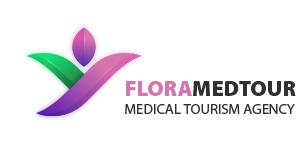Nasal Congestion
Experiencing a stuffy nose is very common. It can be provoked by many various factors. To overcome nasal congestions, medical experts are offering many treatments that should be determined based on your condition. It is believed that by reading this article you get all the required information on nasal congestions.
What is Nasal Congestion?
Nasal congestion, colloquially known as a stuffy nose or blocked nose, is a nasal impairment that is usually caused by sinus pressure. It occurs when blood vessels and mucous membranes of the sinuses start swelling. This problem could be very annoying for suffering patients as it should be treated ASAP. According to healthline.com some symptoms of nasal congestion are:
- A stuffy nose
- Pain in the sinus
- Mucus buildup
- Swelling in nasal tissue
Different Causes of Nasal Congestion
Nasal congestion can be caused by many reasons. Patients should visit a doctor in order to detect where their nasal congestion comes from and treat it immediately. By referring from patient.info, we list some main reasons that can result in having nasal congestion below.
- Sinus infection (Sinusitis)
- Allergic or chronic rhinitis
- Flu or a bad cold
- Allergies
- Hay fever
- Nasal polyps (noncancerous tumors in the nasal passage)
These are the most common ones. You can also see less common causes of nasal congestion in the following.
- A deviated septum
- Nasal trauma
- Swollen adenoid glands
- Chemical exposures
- Change of the hormones and increases blood supply during the pregnancy
- Side effects of some medication
When Should I See My Doctor for Treating the Nasal Congestion?
Patients should notify their doctors promptly if symptoms of their nasal congestion continued for more than 7 days. You can schedule your medical visit sooner if the symptoms are harsh. ENT specialists or otolaryngologists can help you to reduce and solve this issue. According to patient.info, patients who are experiencing the following conditions should see an ENT specialist:
- Having fever as well as having nasal congestion
- When the congestion in your nose is not getting better after two weeks by trying the suggested remedies
- Nose bleeding
- Blockage only in one side of the nose
- Having difficulties for breathing and feeding (for babies)
What is Sinus Congestion?
This painful condition occurs when fluid becomes trapped in the sinuses and makes them feel blocked. In mild cases, it can be managed by taking over-the-counter medications. However, if the pain and blockage are severe you should see an ENT specialist immediately. In the following, you can see the most frequent symptoms of sinus congestion
- Runny nose
- Stuffy nose
- Headaches
- Difficulty in breathing
- Cough
- Sore throat
- Mucus dripping down the throat
- Feeling pain or pressure in the face
How Can I Treat My Nasal Congestion?
The required treatment for nasal congestion is dependent on how severe it is. In mild cases, maybe a self-care or a home remedy will manage the congestion. In serious cases, it may even lead to surgery to treat the patient’s nasal congestion. Whatever, no matter how mild or severe your condition is, it is recommended to take help from a specialist to control your nasal congestion. During the medical visit, the doctors will prescribe you the fitting treatment based on your condition. In the following, we gathered the various treatments desirable for nasal congestion for your consideration. Treatments for curing nasal cognition mainly divided into 3 categories:
1-Home treatments
These are the frequent remedies that patients who are experiencing nasal congestion can take. Although using these treatments wouldn’t cause any problems for patients but it should be taken under the doctor’s supervision. You can see some frequently used home remedies that are suggested by specialists to treat nasal congestion:
- Using humidifiers
- Breathe in the steam from a pot of hot water
- Drink fluids
- Placing a warm wet towel on the face
- Using nasal irrigator
- Spraying nasal saline spray
- Lie on a couple of pillows at night
2-Over the counter medicines
Patients can also take OTC medications to treat their nasal congestion. The medications will usually cure mild nasal congestions. You can easily purchase these medications from your hometown pharmacy without a doctor’s prescription. Some most useful OTC medicines for nasal congestions are:
- Decongestants: These medicines will reduce the swelling and sinus pressure in your nasal passage. Some examples of nasal decongestants medications are naphazoline, oxymetazoline, and phenylephrine.
- Antihistamines: Antihistamines will reduce the sniffling and sneezing caused by nasal congestion.
- Pain relievers: Although these medicines won’t treat nasal congestion, but they can be a great help for patients to relieve the annoying pain of Sinus pressure. Some mostly used pain medications for nasal congestion are acetaminophen, ibuprofen, and naproxen.
3-Medical surgeries
In serious cases of nasal congestion, the only way to treat the congestion is to undergo a needed medical surgery. Septoplasty and Balloon sinuplasty are the suggested medical surgeries in these cases. In the section below we will discuss briefly the outcomes and effects that these two surgeries may have for a nasal congestion patient.
How Can Septoplasty and balloon Sinuplasty Treat Nasal Congestion?
Septoplasty
This medical procedure will be opted to treat the chronic nasal congestion of patients by reducing the sinus infection. Moreover, a successful septoplasty surgery will reduce the facial pressure and nasal drainage problems of nose congestion. The other benefits that a septoplasty may offer to patients are:
- Fix the deviated septum
- Correct the breathing problems
To get more information about the Septoplasty surgery, please visit Flora’s septoplasty page HERE.
Balloon Sinuplasty
This is fairly a new surgery used to treat severe nasal congestion and sinus infection. During the surgery, the surgeon uses small balloon catheters to drain the nasal sinuses. As patients are dealing with their medical problems by having this surgery, most insurance companies will cover the expenses. To get more information about the Baloon sinuplasty surgery, please click HERE to see Flora’s balloon sinuplasty page.
How Serious Can Nasal Congestion be?
The amount of time you may have to deal with a stuffy nose highly depends on the seriousness of the infection, the patient’s condition, and age. As it has been mentioned nasal congestion may even necessitate the patients to have surgeries to treat the issue or it can be easily managed by taking OTC medicines. However, in the following, we will explain the situation of having nasal congestion in infants, children, the elderly, and pregnancy.
-
For children and infants
For infants, a nasal congestion condition is very threatening as it may lead to fatal problems. Though having a stuffy nose is very irritating for older children but it won’t usually put them in an intolerable situation. Symptoms of infants’ nasal congestion can interfere with their feeding and breathing. It can also prevent normal speech development. Following this, it is necessary to contact an ERT specialist when your infants are experiencing congestion in their noses. With the help of your doctor, you can select the best treatment for your baby’s stuffy nose.
-
Elderly
Although having nasal congestion is very common in old peoples, it is often neglected because they think that it’s not life-threatening. In fact, overlooked nose congestion can lead to severe problems after a while. Therefore, it is necessary for seniles to treat this issue in the very beginning.
-
During Pregnancy
During the pregnancy, females may experience congestions in their noses. This problem mainly occurs due to changing hormones while the pregnancy time span. Although it is very common and not life-threatening, patients should find a way for treating their nasal congestion during their pregnancy.
-
Rhinitis
Rginities, colloquially known as runny nose, is a condition in which the patient suffers from nasal inflammation. As mentioned, one of the reasons for nasal congestion to occur is having allergic or chronic rhinitis. It can also lead to sinusitis in patients. To see a fuller explanation about rhinitis and its treatment, please see Flora’s Rhinitis page by clicking HERE.
Is Iran a Wise Choice for Treating My Nasal Congestion?
As the quality of medical services in Iran is dramatically high, our country is recognized as a popular destination for patients to treat their nasal congestion. Besides the superior quality, the cost of medical procedures in Iran is very economical compared to other countries. Moreover, medical tourism facilitators will offer you great help for planning and having your treatment in Iran. You can see the other benefits that Iran holds for patients below:
- Experienced and most skilled ERT (Otorhinolaryngology) specialists of Iran
- Iranian developed hospitals and clinics
- The high percentage of satisfaction of patients from their medical procedure’s results.
- The great hospitality of Iranians
- The natural and historical beauties of Iran
- Iran is listed among the safest countries for traveling according to the travelriskmap.com
Flora’s Extraordinary Services for Nasal Congestion Treatment
If you plan to treat your nasal congestion in Iran, Flora would be the wisest choice for you as a medical tourism facilitator. In this section, we’re goanna overview some benefits that Flora medical tourism agency provided for its patients.
- Flora has a specialized follow-up team consisting of medical experts that will monitor your health condition for two years after your treatment
- Flora’s customers are benefited from a CRM system (customer relationship management)
- Flora appointed the most skilled surgeons of Iran for performing its patients’ medical surgeries
- Our agency offers you various cosmetic services at the most economical price with the superior quality
- Best accommodations in Iran
- Iranian delicious food
- Beautiful, Mesmerizing Souvenirs of Iran
- An optional sightseeing tour
- Medical Check ups
- Flora’s general services: you can see all these free services that we provided for our customers HERE.
Last Word
Having nasal congestion may disturb the patient’s quality of daily life. Although not every case of nasal congestion is life-threatening, but patients should care for the stuffy nose at the outset. In the above article, we analyzed different aspects of this issue and the difficulties that it may occur for patients. Also, some treatments to overcome nose congestion are included. All in all, if you still need more information, please contact Flora’s online team. Our online consolation medical team will help you eagerly and heartily.








Recent Comments